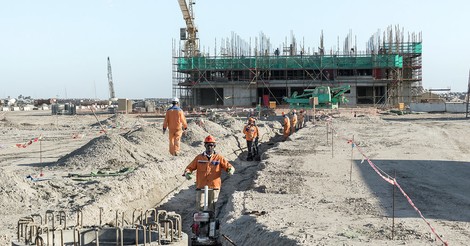Your podcast discovery platform
Curious minds select the most fascinating podcasts from around the world. Discover hand-piqd audio recommendations on your favorite topics.

piqer for: Globalization and politics Global finds
I am an Australian freelance journalist focussing on conflicts, politics, and warzones around the world. I have been working as a journalist for over 5 years, having reported from Australia, Germany, China, Egypt, Palestine, and Ukraine. I am especially interested in the way that new technologies are being used in conflict zones in unexpected and often disturbing ways. During my time working as a journalist, I also co-founded open-source war reporting site Conflict News.
Is China the World's New Colonial Power?
Since the end of the colonial period, through to the modern day, Africa has remained the most under-developed region on Earth. Crippled by a lack of infrastructure, roads, telecommunications, and electricity generation, economies struggle to grow, and African countries remain some of the poorest in the world.
Over these last few decades, however, another region has managed to pull itself up from similar levels of poverty and has now grown to become the second most powerful country on Earth: the People's Republic of China. What's more, after decades of focusing on improving itself it is now spreading its reach into the outside world - including into underdeveloped Africa.
Indeed Africa now is the scene of some of China's largest foreign investment projects. Huge mines, mega-farms, high-speed rail lines and even nuclear plants are being constructed across the continent. The official line is these are emblematic of what China calls win-win cooperation - China gets food, minerals, and strategic locations, while Africans get infrastructure and jobs.
But this bargain is perhaps not all it is cracked up to be. While many African nations have benefited significantly from Chinese investment, others are burdened by Chinese debt or beginning to feel like hostages to Chinese political interests. Africans too are beginning to fight back politically, asking for a fairer and less exploitative bargain than that offered by European colonialists over a century ago.
Brook Larmer's article for the New York Times Magazine looks at the case study of Namibia and weaves a story of Chinese immigrants and their relationship with the locals. In their hopes, dreams, and fears he finds that China's presence in Africa is both self-centered but also something more complex than simple colonialism.
